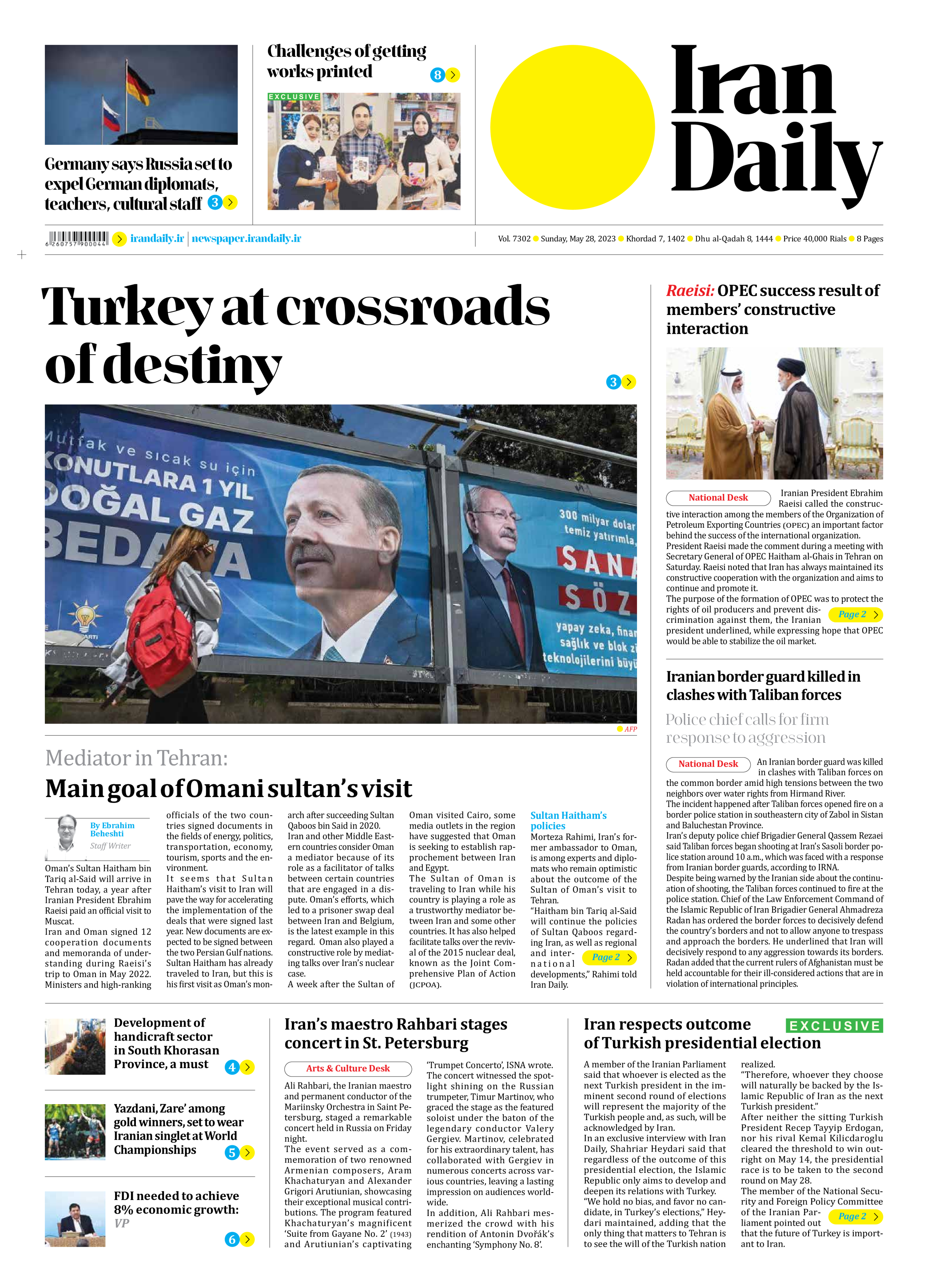
Turkey at crossroads of destiny
By Zohreh Qannadi
Staff writer
In the embrace of anticipation, Turkey today stands poised at the crossroads of destiny, as in the second round of the presidential election, incumbent President Recep Tayyip Erdogan and opposition leader Kemal Kılıcdaroglu face off in a battle that will capture the attention of the entire nation.
Today, there will be a runoff vote between Erdogan and Kilicdaroglu after neither candidate received at least 50% of the vote from Turkey’s 64 million eligible voters in an earlier round on May 14. The first round finished with Erdogan receiving 49.5% of the vote, while Kilicdaroglu garnered 44.9%.
The race is characterized by intense campaigning, televised debates and rallies, as both candidates sought to rally support and convince voters of their vision for the country’s future.
Heading the People’s Alliance, Erdogan is known for his strong leadership and conservative policies. He emphasizes his achievements in economic development and national security. Erdogan appeals to his supporters by highlighting his commitment to preserving Turkey’s cultural and religious values, promising to continue implementing policies that would enhance the country’s global standing.
On the other hand, Kılıcdaroglu, at the head of the Nation Alliance, positions himself as a champion of democratic reforms and social justice. The leader of the Republican People’s Party (CHP) criticizes Erdogan’s government for alleged authoritarian tendencies and pledges to prioritize human rights, freedom of speech, and equality if elected president.
According to analysts, after two decades in power, Erdogan and his Justice and Development Party (AKP) appear to have the upper hand heading into a presidential election runoff today.
Erdogan’s right-wing political bloc has also secured a majority in separate parliamentary elections. Just days before the runoff, Sinan Ogan, who placed third in the first-round vote, endorsed him.
Erdogan has repeatedly sailed to re-election, but he faces mounting challenges despite his significant strengths. The political opposition was a significant challenge for Erdogan. The country’s six-party opposition coalition challenges his two-decade rule.
The government’s failure in tackling the crisis caused by the February earthquake, as well as several economic challenges including high inflation, a weak currency, its fierce foreign policy, and the restriction of civil liberties are the most important criticisms directed at his performance.
The Turkish opposition has also been growing in strength and influence in recent years, with several parties and movements emerging to challenge the ruling party’s dominance. These opposition groups have been able to gain significant support from Turkish citizens.
Blaming the president’s economic policies, the opposition has promised the return of trust and normal conditions. But they preferred to talk only about who brought the situation in the country to this point and turned the election into a referendum on the government, without explaining what their own power will look like.
The election also presented a rare opportunity for the opposition to challenge Erdogan and his AKP amid the political fallout from the recent deadly earthquakes that killed more than 45,000 people and prompted accusations of a lackluster government response.
Kilicdaroglu, focusing on Erdogan’s costly foreign policy and, especially, Turkey’s proximity to Russia and its distance from the West, has promised closer relations with Western countries. He has even accused the Russian president of meddling in Turkey’s elections in recent days. Kilicdaroglu’s secular party has always been inclined towards the West.
Erdogan on Thursday defied forecasts of his political demise in Turkey’s elections, rallying voters with a potent mix of religious conservatism and nationalism that looks set to propel his rule into a third decade.
Critics also say he has increasingly polarized the nation during his 20-year rule, including in this election campaign. But he argued the contrary ahead of today’s vote, saying that his opponents were “poisoning political discourse”.
The election ultimately has become a referendum on the direction Turkey will take in the coming years, with voters weighing the merits of stability and continuity versus the desire for change and a more inclusive society.







